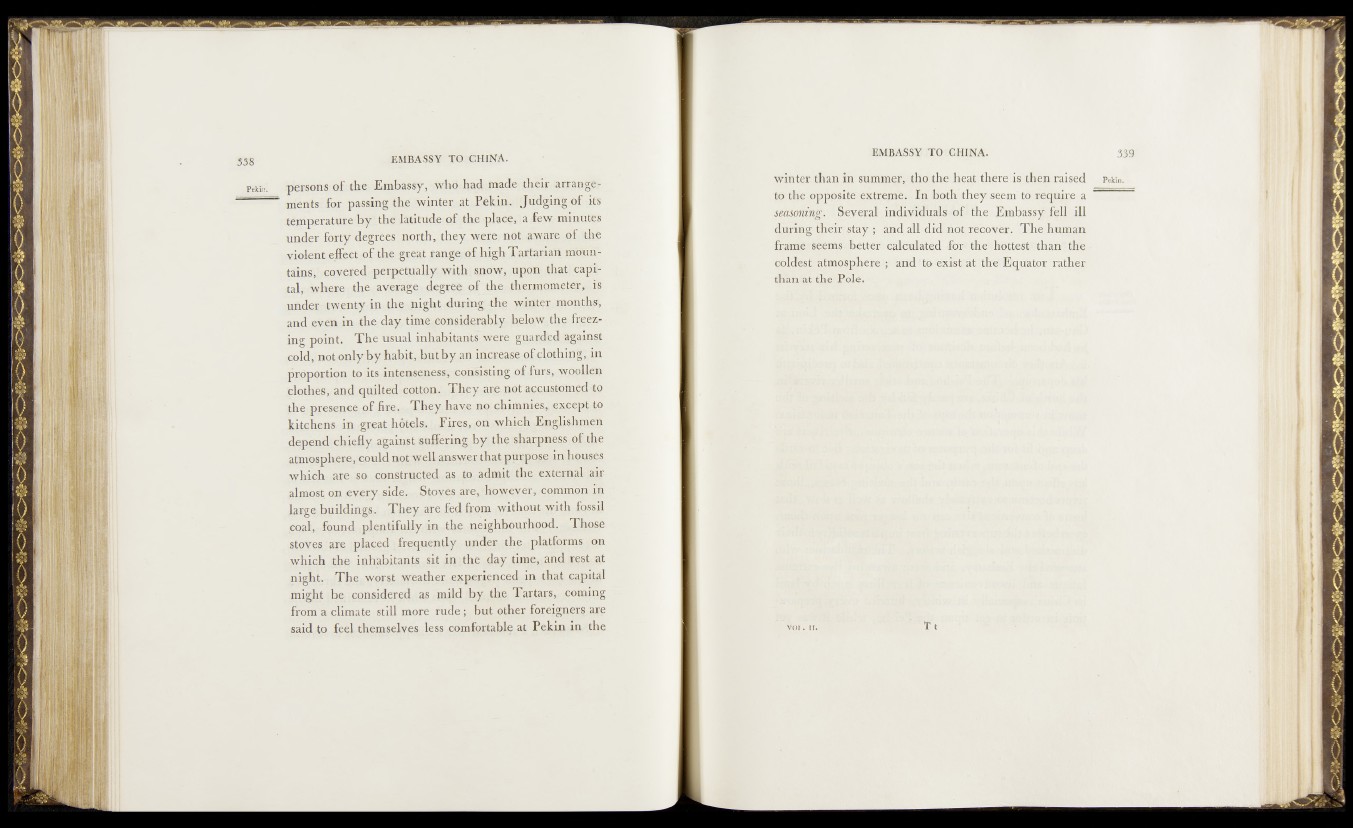
ipersons of the- Embassy, who had made-their arrange*-
s=s==i=‘ ments .for passing the winters ,atriPekin. Judging ofifs
temperature by .the latitude of the place,, a few, minutes
under forty degrees north, they were,, not aware ,of,!the
violent .effect,of the great range of high Tartarian mountains,
etpgfed perpetuallywvith. snow, uppn that capital,
wherepthe,average degree of the therrnqmeter, is
under twenty-in the night.duringUhg winter months,
and even-in the day time-considerably helorWjjth^Jj^fet-
ing point. The usual inhabitants-were guai)d£dj|gai^st
^phj,not only by habit, b u t^ a n
proportiondo its intenseness,- cohosting of furs-,jYp|)llefn
clothes, and quilted cotton. They-arp nQtaGqustpmed<o
jfie presej^ftof fire. TheyJiav.e no chirn^es^jgxpept.to
kitchens in -gyeat hotels. Fires,,,on which ^Englishmen
depepd chiefly against suffering,by: the[shpgJSf§s^f the
atmosphere,.could not well answer that purpose ,inh $$0 $?
which are so constructed, as ,to admit .the e^te^nai:air
almost on jevery side. Stoves are^ howeyer, .common in
Ja^ge buildings. They are fed from without ^itb;fqssil
Coal, found plentifully in the neighbourhood,
stoves are placed ^frequently under the platforms
which t;he inh|d?itantssjfjf jin.the .dayjirneuand.irest-at
night. The.-worst weather experienced in that capital
might be considered as mild by the Tartars, coming
from a climate still more rude; but ether foreigners are
said to feel themselves less comfortable at Pekin in the
winter-than In summer^ thothe heatthere is then raised
to titeM^'P^hfeiektreme. In b,oth< they, seem to require a
seaiotfiy».- ’ Several indmiluAls^grthe Embassy fell ill
during thei^|fay?;' and ||kdid not^&f.p’vcr. The human
frame^se’ems^tetto^cplt^laffc^d, -for the’-'hqttp^than the
coldest1 atmosphere-; and tb&xisjf&t tfretiE'quator rather
than at the Pole*. - E